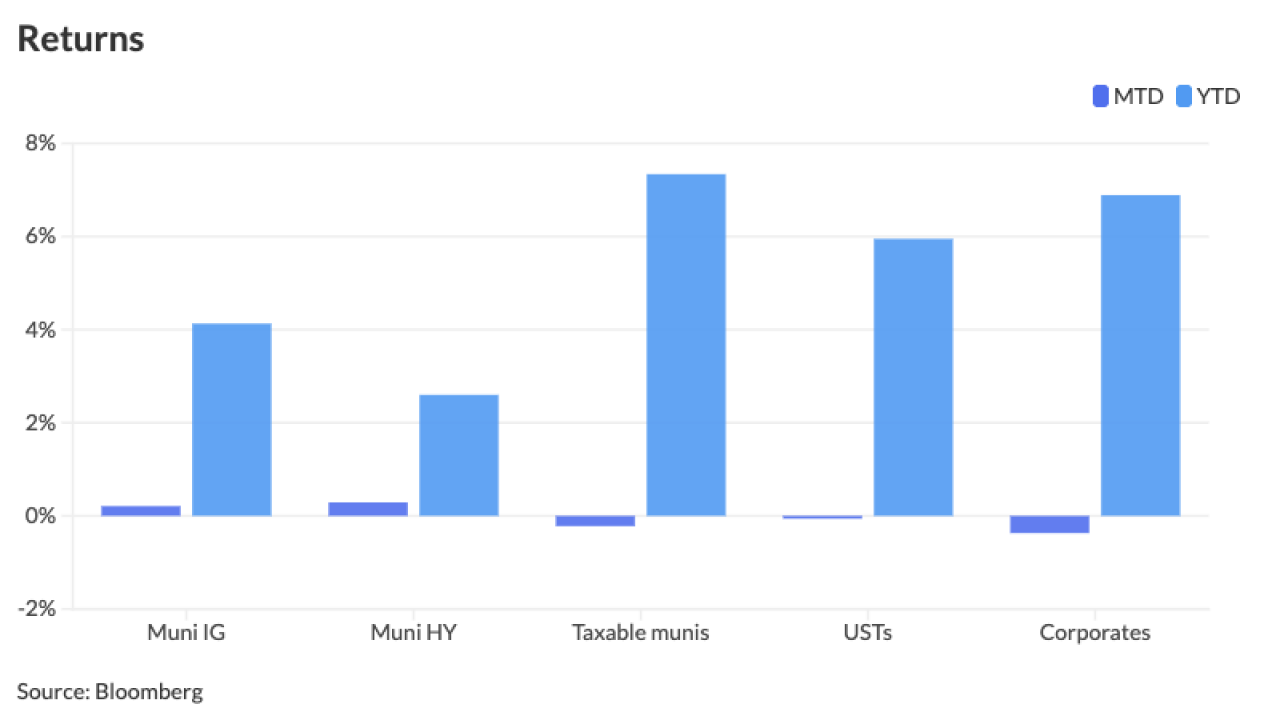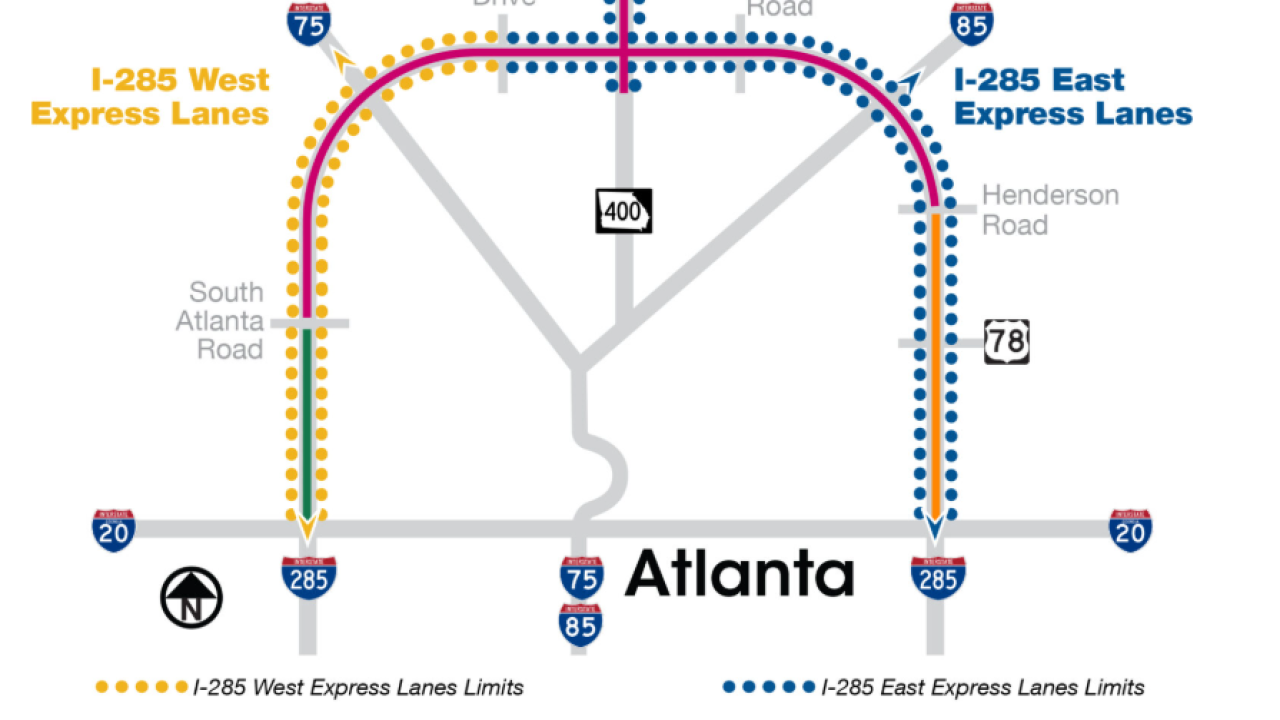The way state and local governments conduct business may change in the wake of the coronavirus pandemic, with less emphasis on office infrastructure and more remote interaction with potential investors.
Since March, many municipal employees have shifted to working from home to slow the spread of the coronavirus. This has affected how governments set up their information technology systems, and changed how governments function and interact with their investors.

Oklahoma City Assistant City Manager Kenton Tsoodle said the spread of COVID-19 has caused issuers to look at teleworking as a future option.
“It’s opened up a lot of eyes towards the work from home concept or remote, teleworking,” Tsoodle said. “It also really tested our continuity plans, which I’m happy to say seemed to work pretty well. People had backup plans in place. It really does change the viewpoint on being open to working from home or working remotely.”
Tsoodle said the pandemic made him rethink purchasing hardware such as desktop computers compared to laptops, which are easier to bring home. The city is also considering taking advantage of teleworking in its future, post-pandemic. At the height of the pandemic, half of its employees worked in its downtown campus and buildings. Now about 10% to 15% are working from home, Tsoodle said.
This doesn’t mean the city will sell its buildings, but it may mean looking at teleworking as an option as opposed to buying more space.
“We already own buildings and have buildings and so I don’t think we’re considering getting rid of our buildings,” Tsoodle said. “But I think what we’re considering is just in the future, would we want to take advantage of more teleworking situations? As our needs for space grow, maybe that’s something we consider, as opposed to buying space.”
On top of adjusting to remote work, Oklahoma City also had two competitive bond deals in late March. Both series were general obligation, one taxable at about $60 million and the other tax-exempt for about $51 million.
“At one point, there was a concern if anyone would even show up,” Tsoodle said. “They ended up being well bid.”
The city had eight to nine bidders, down a notch from the usual 10 to 12, Tsoodle said.
The city was so worried that no investors would come due to weakened economic conditions caused by COVID-19 that it had contingency plans to move those sales a month or two down the road.
“It was really a wait-and-see approach and we made the call a few days before the sale was scheduled,” Tsoodle said.
Issuers will sometimes present roadshows to attract investors on a deal. However, Oklahoma City, as a triple-A issuer with investors familiar with the credit, didn’t see a need, Tsoodle said. In the last five to seven years, the city has been doing fewer roadshows. For revenue bonds, which can be a little less predictable than general obligation bonds, they make recorded presentations, so there isn’t a need to meet with investors.
Public government meetings have also become virtual since COVID-19, and face cybersecurity risks.
At a virtual city council meeting last month, hackers took over the meeting, Tsoodle said, and played Russian music. New links to the meeting were sent out to participants.
Giedre Ball, a debt program manager for the Metropolitan Washington Airports Authority, said MWAA doesn’t currently have plans to scale back office space. But the idea of an open space concept — where employees are out in the open in cubicles, with few managers having their own offices — is being considered.
As employees begin to go back to work, people in cubicles will still want to maintain social distancing so alternating schedules may be needed.
“That will be really interesting to work out because, for example, treasury and accounting are right next to each other,” Ball said. “How do you work out treasury’s schedule with the accounting schedule to make sure people are able to social distance?”
When employees go back into the office, there may be restrictions on using conference rooms and in-person meetings, and lingering around to get coffee may be discouraged, Ball said.
“Why is there a need to go to the office if I cannot keep distance and I cannot meet with people?” Ball said. “I might as well accomplish all of that at home.”
Teleworking when COVID-19 caused employees to work from home went smoothly, Ball said, because its IT department for the last two years had been developing an emergency plan.
“A lot of issuers did not have telework policies in place,” Ball said. “So I think these mandatory work conditions may have proven the case for more flexible work arrangements and telework policies in the future that the corporate world had promoted in the past decade.”
Some Washington authorities tried their hands at new deals during the pandemic, citing scheduling challenges.
The Washington Metropolitan Area Transit Authority went out with a new credit to investors in June — a $545 million deal for its capital program through its dedicated revenue bonds Series 2020A. Virginia, Maryland and Washington D.C. secure those bonds through a trust estate. Their allocations depend on ridership and costs related to WMATA.
A new credit would normally mean possibly going out to do a physical roadshow, but David Ardayfio, managing director at Barclays Capital, said they were used to doing investor calls over the phone.
“Since investors are used to doing one-on-one calls, and because this was a new credit, we were able to host a number of sessions over the phone,” Ardayfio said. “In today’s environment, this was made slightly more complex with issues like child or family care, but we were able to work around that.”
It was sometimes difficult to set up times with people not being collectively in one place, so it was new managing to get everyone on the phone at a convenient time, Ardayfio said.
“Given a lot of people working from home, we just had to incorporate that,” Ardayfio said. “All of us would typically be in New York for a pricing, etc., but now we’re in a different place.”
The Connecticut Housing Finance Authority stressed it was still open for business during the pandemic.
“It is different,” said Hazim Taib, chief financial officer of the CHFA. "We want to let people know it’s been a challenge, but we’ve stepped up to the plate to serve the people of Connecticut.”
The self-funded, quasi-public agency has about 133 employees at its headquarters in Rocky Hill, a Hartford suburb. CHFA lends more than $500 million annually for affordable housing throughout the state’s 169 municipalities.
“Everyone is working at home, although we do have a schedule that allows some folks to come in,” Taib said.
“In the beginning, it was a challenge for us, to say the least. Not that we couldn’t do it, but we were competing with everyone else trying to secure laptops for our employees, for example.”
Adjustments included staggering schedules and deciding who had priority over equipment. Also, the work-at-home dynamic prompted the agency to improve its cybersecurity systems, Taib added.
Gov. Ned Lamont declared a public-health emergency on March 10, just as the coronavirus escalated. The state has been gradually reopening over recent weeks.
According to Taib, the agency still must maintain a public persona post-pandemic.
“I think it is a balance,” he said. “What we do as a quasi-public agency is public-facing. We can’t operate in the shadows.”
Paul Burton contributed to this story.





